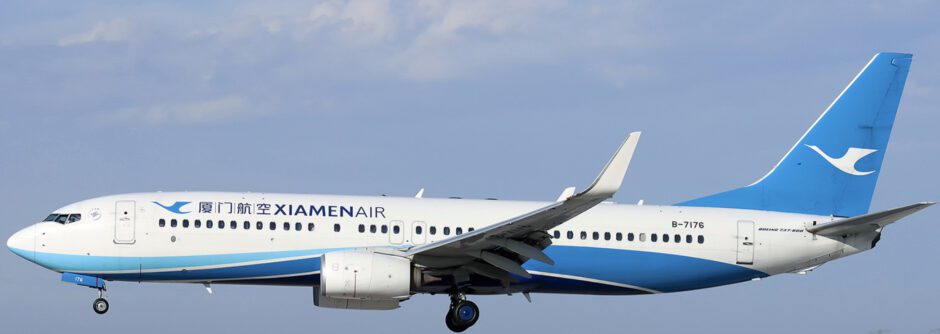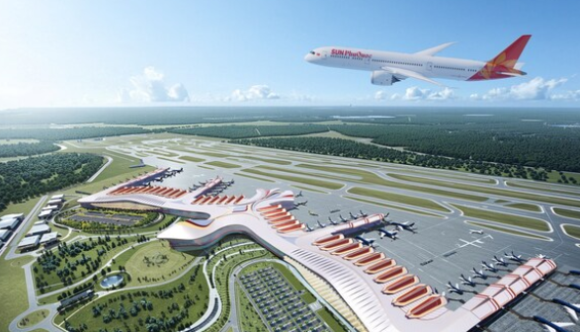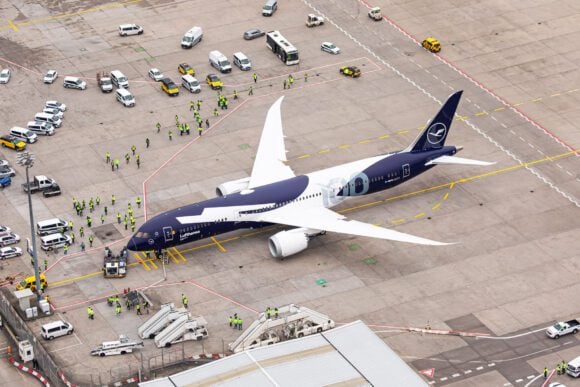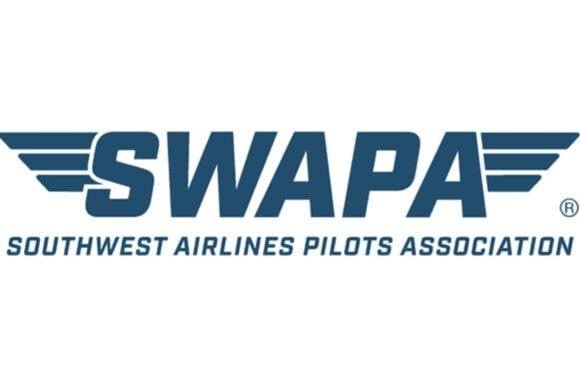
Boeing has been impacted by Donald Trump’s ongoing trade war and has begun returning aircraft that Chinese airlines were prohibited from accepting to the United States. It appears that 10 737 MAX jets ordered by Chinese carriers will not be taken up, and Boeing has begun returning them to the United States.
Returning Aircraft Not Taken Up by Chinese Carriers
The first aircraft being returned was a 737 MAX 8 destined for Xiamen Air. It was moved to Boeing’s Chinese completion facility in Zhoushan and returned to Seattle after refueling stops in Guam and Hawaii en route for the 5,000-plus-mile journey.
In the trade war with China, US tariffs on Chinese goods are currently 245%, and China’s retaliatory tariffs are 125% on US-made goods. Clearly, with tariffs that high, no airline will take up an order, given that the aircraft would cost more than double normal prices. Complaints have been lodged with the World Trade Organization, but resolution of those cases often takes years for adjudication.
Boeing shipped 10 aircraft to China in March and April that are unlikely to be taken up, and will likely be quickly returned from Boeing’s completion and delivery facility in Zhoushan. Reports indicated that three additional aircraft at the facility were being prepped for a return to the United States after the airlines refused to take delivery.
In related Boeing news with China, China Southern Airlines has cancelled earlier plans to sell its entire Boeing 787-8 fleet. That sale has now been postponed to May and could be further extended depending on market conditions for used aircraft. With traffic dropping in many regions impacting airlines, the market value for aircraft appears to be in flux as the changing economic policies in the US make it difficult for airlines to plan.
While Boeing’s long-term forecasts assume Chinese demand will be about 20% of the global market, its backlog shows only 2% of undelivered orders from China. It appears that China has been steering away from Boeing since the 737 MAX crashes, reinforced by the MAX 9 quality escape incident last year. The impact on Boeing in the short term will be minimal, but over the longer term, it may indicate a chilled US-China trade relationship.
Employees Still Not Convinced of Cultural Change
Kelly Ortberg, Boeing’s CEO, released the results of an internal survey this week, which were brutal. Boeing employees don’t trust senior leadership and don’t believe their contributions are recognized or valued.
The survey results showed that employee pride in the company dropped from 91% in 2013 to only 67% this year. The survey also indicated that less than half of the employees were confident in senior leadership’s ability to make decisions, communicate direction, and respond to concerns.
Here is a link to a story that first appeared in the Seattle Times but is not behind a paywall. Boeing clearly has additional work to do to improve its culture, which, as Kelly Ortberg indicated when taking his position, was not something that could be quickly accomplished.
The Bottom Line:
The Chinese market has been moving away from Boeing and will likely continue to do so for the foreseeable future. This represents 20% of the market inaccessible to the company, and it will likely change its marketing focus accordingly. Taking aircraft back is never easy, and it is expensive to convert aircraft from one airline configuration to another. Nonetheless, in today’s environment of several-year backlogs, that is doable for Boeing.
The cultural challenge is a long-term issue, and Kelly Ortberg’s leadership is bringing hope, but at the same time, an “believe it when I see it” attitude at the company. It took twenty-plus years of GE-style management to break employee trust, and it may take that long to regain it. Let’s hope negative attitudes have reached their nadir and will now move in the right direction.
Views: 438
About The Author
Take AirInsight for a Test Flight
7 days full access — premium analysis and the complete data model library — for $1. No commitment.
Start My Test Flight → {
"@context": "https://schema.org",
"@type": "WebPage",
"name": "AirInsight in the Media",
"description": "A curated list of media citations where AirInsight insights are used."
}
{
"@context": "https://schema.org",
"@type": "WebPage",
"name": "AirInsight in the Media",
"description": "A curated list of media citations where AirInsight insights are used."
}




